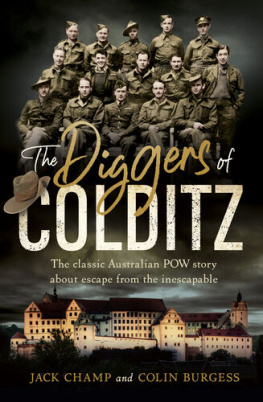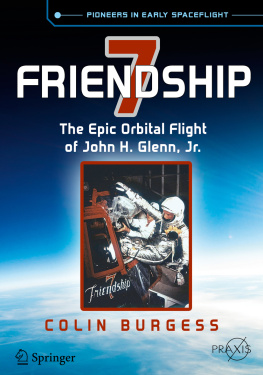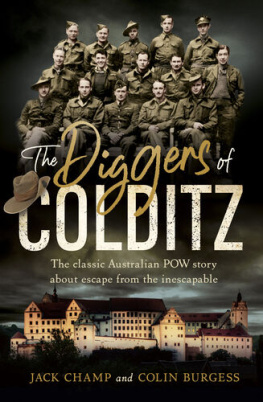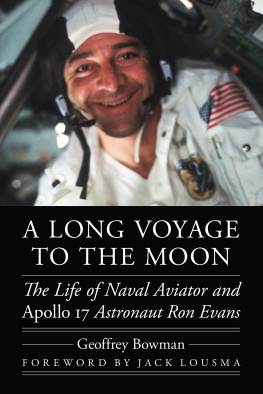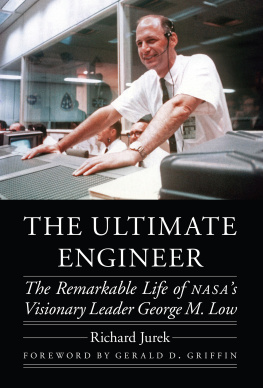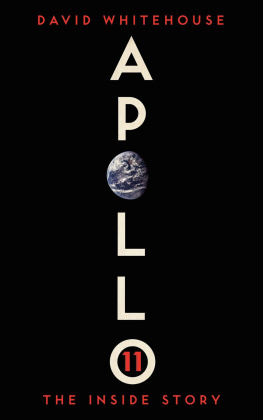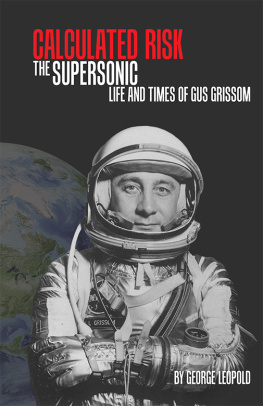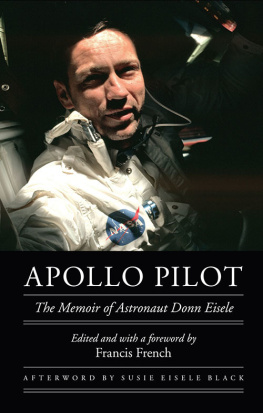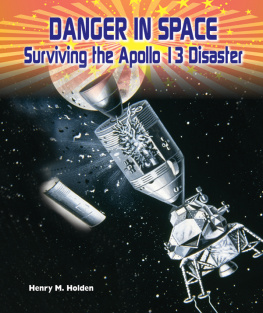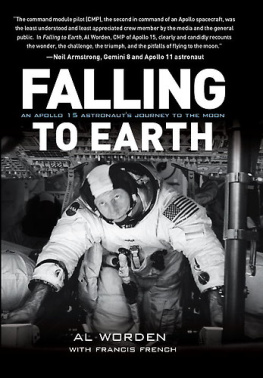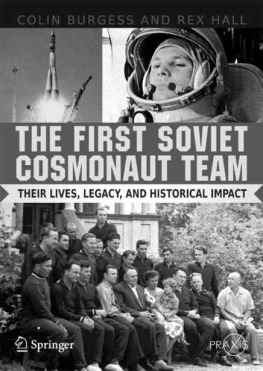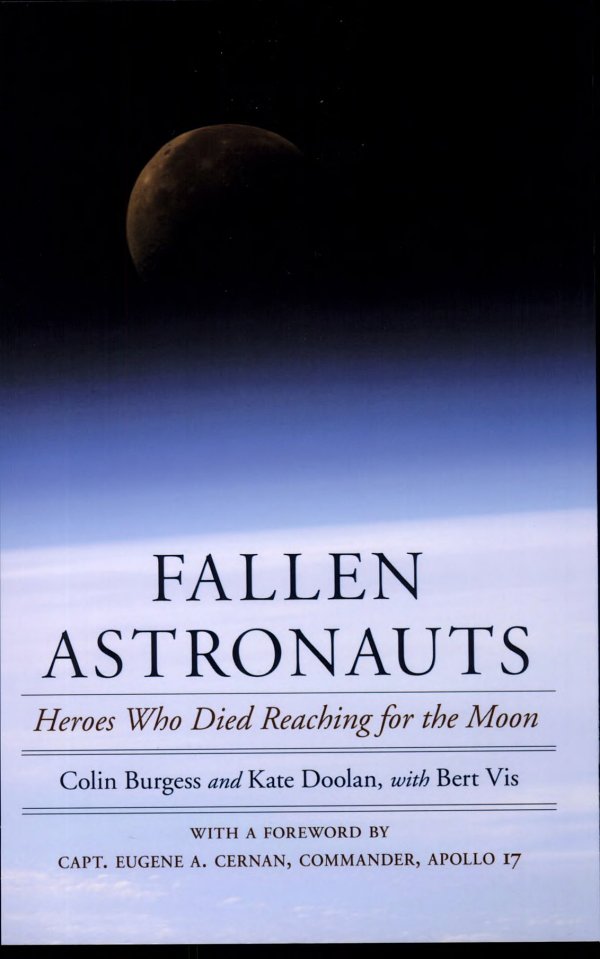Fallen Astronauts
In memory of Dr. Patricia ("Patty") Hilliard Robertson, 1963-2001 NASA Astronaut Class XVII, 1998
She touched our lives only briefly, and her dreams died in a mere instant of time, yet the authors wish to dedicate this book to the extraordinary and prodigious life of a person whose dedication, spirit, and tenacity went hand in hand with a gentle and capricious amiability that endeared her to all those who knew her or knew of her.
Now it is time to take longer stridestime for a great new American enterprisetime for this nation to take a clearly leading role in space achievement, which in many ways may hold the key to our future on Earth.... First, I believe that this nation should commit itself to achieving the goal, before this decade is out, of landing a man on the Moon and returning him safely to the Earth. No single space project in this period will be more impressive to mankind, or more important for the long-range exploration of space; and none will be so difficult or expensive to accomplish.
From U.S. President John F. Kennedy's
Special Address to Congress on Urgent National Needs,
the Capitol, Washington DC, 25 May 1961
We choose to go to the Moon. We choose to go to the Moon in this decade and do the other things not because they are easy, but because they are hard; because that goal will serve to organize and measure the best of our energies and skills; because that challenge is one that we are willing to accept, one we are unwilling to postpone, and one which we intend to win, and the others, too.
From U.S. President John F. Kennedy's
address at Rice University, Houston,
12 September 1962
Fleeting Shadows
(For the Eight)
These noble few, whose names recall A time of loss, a hero's fall. When shrieking rockets pierced the sky And soaring upwards lit my eye To wondrous things, to frontier's new, But there was pause, and silence too. Who knows what ventures yet to see, But suddenly, so suddenly, Dark headlines brought your names afore, Explorers gone, their dreams no more. Oh noble few, whose starry light Fell like a moonbeam o'er the night. Fly once together into space, Dreams unfulfilled you might embrace. In bold formation contrails signed Dancing daggers far behind. As to the darkest night of all Each lifted in their spirit's call A playful sunlight flayed their wings And sparkled spoke of earthly things. Up they flew, beyond the blue, Where star-kissed heavens soft imbue. All outward flew, and yet too soon Cast fleeting shadows on the Moon.
Colin Burgess
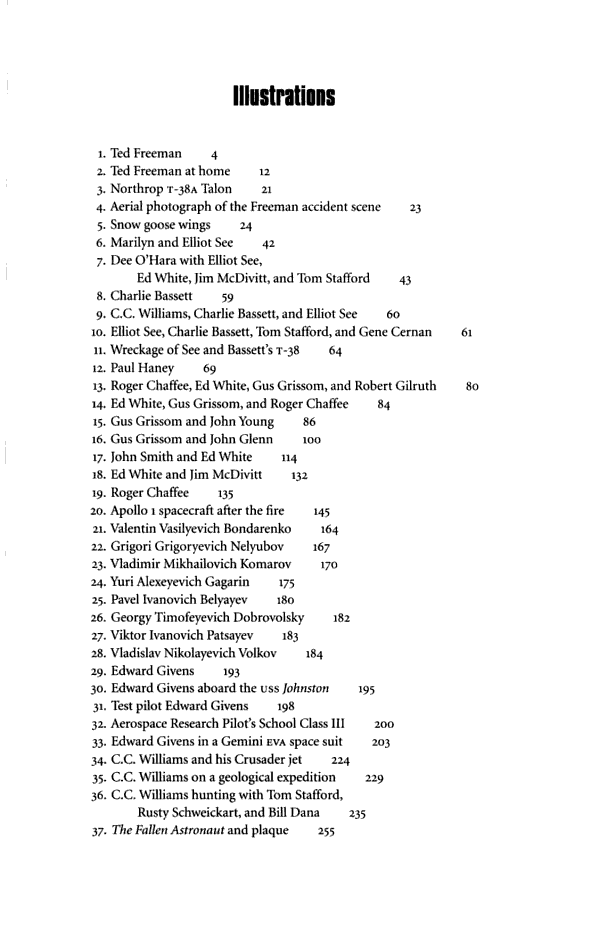
Foreword
Over the past three decades, hardly a day has gone by when I am not asked about some aspect of being the last man to stand on the moon. Millions upon millions of words have been written about this amazing adventure, and yet people are still curious to know what it was like. I even wrote my own book, not just to help answer many of these questions but also so my own grandchildren would know through my words what it was like to live out my dreams. I did not think there could possibly be another book about the Apollo program that would reveal something new or some avenue that had not been explored. But I was wrong.
This is a book about some extraordinary men I worked with in accomplishing that lunar triumph. Most were my good friends as well as colleagues but tragically they fell short of their dreams. In eight years we went from blasting a man into space on a quick ballistic flight to that incredible day in July 1969 when Neil Armstrong first set foot on another world. For each of those eight years we lost an astronaut, but the tremendous pain of this loss could not be sustained for long in our nation's race to the moon. Mission followed hard on the heels of mission, and our training took place at breakneck speed as engineers and planners worked with diligence and inspiration to achieve our goal of a manned lunar landing.
This wonderful book brings back many profound and even long-forgotten memories of the men behind those eight namesnot just as Nasa astronauts training to go into space (and these stories are told) but as loving sons, husbands, fathers, and brothers whose loss still sits deep in the hearts of those they left behind.
It is quite rightly pointed out that these men would have accomplished much in Apollo and post-Apollo programs. Several of them would have gone to the moon, and some undoubtedly would have walked across its powdery surface. The history of human spaceflight altered significantly because of their deaths, and many of us realize we got our chances only because they were no longer in the queue in front of us.
In these pages the authors recall a day in 1991 when the Astronaut Memorial Mirror was unveiled at the Kennedy Space Center, and it was a day I remember well. The families of all fifteen astronauts named on the Mirror had been invited, and I was up on stage representing the astronaut corps. It was an incredibly moving experience for me as I looked out on this sea of many familiar facesthe families of those men I'd known so well so long ago. They were the ones who truly knew the meaning of the sacrifices involved in such a major undertaking. Some were openly weeping as they made their way up on stage, and some were smiling. Many told me how intensely proud they were that day and of the enormous love they still felt for those whose names are forever engraved into this wonderful memorial. The epilogue's reflective words of the children moved me a great deal, as they spoke of fleeting recollections or even in some cases a father they had never known.
Yes, I found out a lot about these men, and I am astonished by the thoroughness and respectful sincerity of the research carried out by the authors. I am impressed that they turned up so many new facts and fresh anecdotes after the passage of more than three decades and that this could be accomplished by three people living around the world. It means a lot to me that the authors derived most of the information from the families of these men rather than reiterating tired and often incorrect profiles from old newspapers and magazines. Every chapter was meticulously checked and edited by at least one member of each family to ensure complete authenticity, and I know the loved ones appreciated this opportunity. That the authors managed to capture the spirit of each of the men in these stories, at the same time intertwining the fascinating story of our race to the moon, is a credit to them and their spirit of perseverance.
This book means a lot to me, because Ted, Elliot, Charlie, Gus, Roger, both Eds, and C.C. meant a lot to me. I now know a great deal more about them and admire them still, even though there were passages in this book in which I had to relive the anguish and trauma of their passing.
The publication of Fallen Astronauts provides a fitting closure to the story of Apollo, and I know as I write these words that it is one book I will always accord a prominent place on my bookshelf and in my heart.
Captain Eugene A. Cernan, U.S. Navy (ret.)
Pilot, Gemini IX
Lunar module pilot, Apollo 10


